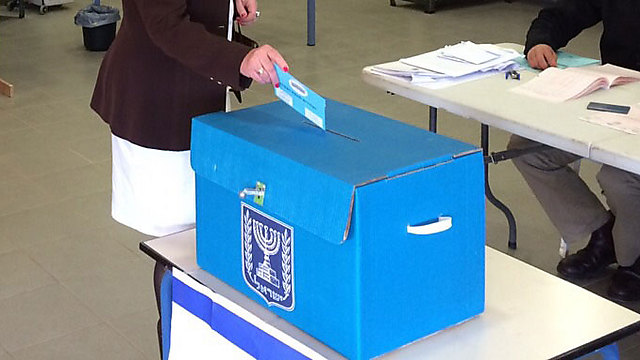
Surplus votes deal: How parties boost their Knesset quotient
Two parties can reach an agreement to combine their leftover votes so that one of them could secure an extra Knesset seat, but critics say the process runs counter to actually implementing the will of the electorate.
Over the years, Israeli politics has created numerous unique methods to handle the issue of how parties are represented in the Knesset. One of those methods —and perhaps the one the public is most acquainted with—is the “Heskem Odafim” or voter surplus agreement, which effectively gives a small party a second shot at making it into the Knesset.
After the polls close, the votes are counted and each party that makes it past the threshold is allocated a number of the 120 Knesset seats depending on the percentage of the vote they received. However, it is rarely a tidy number, and there is normally a number of votes for each party that do not translate into a full Knesset seat. And this is where a party can boost its number of seats, if it manages to strike a deal with another party for surplus votes.
Two parties can use the surplus votes agreement to combine their leftover ballots, and if the two combined totals adds up to enough votes to make a full seat, it then goes to the party with the greater number of surplus votes (which most of the time is also the bigger party).
The agreement, however, can only be utilized by two parties who have passed the electoral threshold and who informed the Knesset Elections Committee of their plan 10 days before the elections. The commitee must also approve such an agreement.
But in some instances this agreement can harm the parties, especially if one of them fails to pass the electoral threshold.
In 2003, the Shinui party, headed by the late Yosef Lapid (Yair Lapid's father), signed a surplus votes agreement with the Green Party. But since the agreement only applies to parties that manage to pass the Knesset threshold, Shinui lost out as the Greens failed to win enough votes and its ballots were wasted instead of helping Lapid's party to secure more parliamentary seats.
Nevertheless, many big parties tend to team up with small parties in order to earn an additional Knesset seat, but do avoid signing the surplus agreements with new parties.
Parties that sign the agreement usually belong to the same political camp, and therefore those that refuse to cooperate with another party can face harsh criticism from their own bloc.
On the other hand, criticism has been also voiced against parties that do sign the agreement.
"The method slightly distorts democracy because not all the votes go to the party the electorate voted for," says Prof. Gad Barzilai of Haifa University. "On the other hand, the agreement is usually signed between two parties that are ideologically similar. The Israeli voter casts his ballot according to which party has the chance to pass the electoral threshold, while not taking into account which parties decided to team up. In my opinion, this method succeeds in preserving the voter's will."












